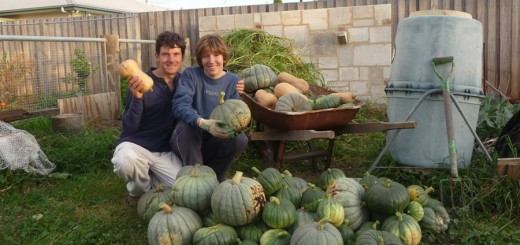The word permaculture originates from the words “permanent agriculture”. There are various definitions, but I think these are the ones that best capture what permaculture is in the easiest to understand manner:
An ethical design process for a sustainable lifestyle.
Or, more nuanced:
A design process and set of techniques for creating resilient and truly sustainable human habitats and healthy ecosystems.
The permaculture concept was created and refined by David Holmgren and Bill Mollison in the 70’s. This was a time of great technological change, but also a growing realisation among many that we were starting to live beyond the capacity of the Earth to sustain us. That is, the way we organised our agriculture, energy and economic systems were unsustainable.
Collectively, we are now in ‘ecological overshoot‘, using the equivalent of 1.5 planets worth of resources and waste absorption. We survive that reality now by consuming our way through the Earth’s capital – the fossil fuels, fish stocks, water, soils, and it’s ability to absorb waste (think Climate Change), and by creating unfathomable amounts of debt.
Now, that might seem bad enough, but if everyone lived like the average Australian, we’d require 3.7 planets to sustain our consumption. It’s up to each of us to say, we’re just not going to live like this anymore.
Surely we don’t need all that crap to be happy? There must be a better way?
Is there a way in which to live within the bounds of the earth, and YET STILL have a high quality of life? It’s in the answer to this question where permaculture really shines as a positive guiding force in creating a more sustainable future.
The Permaculture Flower
Permaculture is about a lot more than growing food sustainably. At it’s core, are the Ethics & Principles, which informs all aspects of a sustainable society. It is possible to apply permaculture ethics & principles to all aspects of work and life, and opportunities exist to create new organisations, businesses and livelihoods that don’t involve just growing food – we don’t all need to be farmers.

The ‘Domains’ of Permaculture. Credit: http://permacultureprinciples.com/










